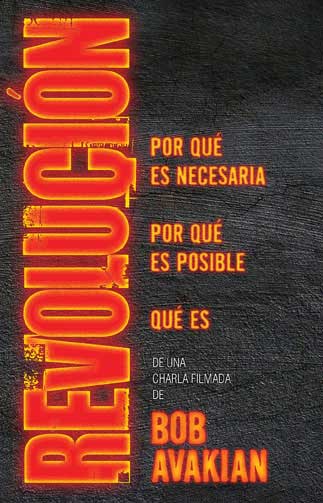Revolution #51, June 18, 2006
From Testimony by Journalist Dahr Jamail:
War Crimes of the U.S. Occupiers in Iraq
Last January, independent journalist Dahr Jamail, who reports extensively from Iraq, testified at the culminating session of the International Commission of Inquiry on Crimes Against Humanity Committed by the Bush Administration (bushcommission.org). In the following excerpt from his testimony, Dahr Jamail speaks about the targeting of civilians and other war crimes by the U.S. forces that he witnessed in Iraq.
Dahr Jamail’s testimony makes it even clearer that, as we noted in last week’s issue of Revolution, the cold-blooded murders of 24 Iraqi civilians by U.S. Marines in Haditha last November is not an “isolated incident.” The massacre is a concentration of the illegal and immoral U.S. occupation of Iraq and the war crimes that are being committed every day against the Iraqi people.
The broad charge against the Bush administration in Iraq is that their conduct, their deployment of military force and their treatment of civilians and prisoners has been excessive and indiscriminate. This is in violation of the laws of war and the Geneva Conventions. To show this I’ll cite examples I have witnessed during my eight months’ reporting from occupied Iraq…
Collective Punishment. I’ll use Fallujah as the model city for Bush policy in Iraq. The U.S. caused actions to be taken in Fallujah in violation of the laws of war. For example, targeting, by snipers, of children and other civilians, targeting of ambulances, placement of snipers on the roofs of hospitals and prevention of civilians from getting there for medical attention and also, illegal weapons used…
It should also be noted that the U.S. military, again, following order from their Commander in Chief, declared the entire city of Fallujah, a city with a population of over 350,000 civilians, a free-fire zone, meaning once that operation began in November of '04 anything in the city was to be targeted by the U.S. military… It should also be noted that approximately 70 percent of the entire city of Fallujah was bombed to the ground during the U.S. assault on that city in November of '04, which left dead estimates of between four and six thousand civilians. Water, food and medical aid were cut off from Fallujah both before and after the siege of that city. This form of collective punishment, which I’ve seen first hand in Ramadi and Samara as well, has even led the UN to declare in October of last year that this was “a flagrant violation of international law.”
Either in part or in full these policies have been utilized in the cities of Ramadi, Samara, Haditha, Fallujah, Alkaim, Bilad, Abuhishima, Sania, Najaf, Kut, Baghdad, Mosul, to name some.
Illegal weapons. Cluster bombs, uranium munitions (otherwise known as depleted uranium), white phosphorous and fuel air bombs have been used and are being used in Iraq. All of these, according to Protocol 1…of the Geneva Conventions, applies to the “Methods and Means of Warfare.” Article 35 states: “In any armed conflict the right of the parties to the conflict to choose methods or means of warfare is not limited. It is prohibited to employ weapons, projectiles and material and methods of warfare of a nature to cause superfluous injury or unnecessary suffering.”
Lack of Reconstruction, i.e., the Corporate Looting of Iraq. The 100 “Bremer Orders” initiated by U.S. proconsul Paul Bremer under the CPA changed many laws in Iraq, itself a violation of international law. But particularly they changed laws which affected the economy. The gross effect of this was the opening of Iraq’s borders to foreign goods, foreign ownership of Iraqi banks and making U.S. soldiers and contractors immune to Iraqi law. This also made any corporation, such as Bechtel and Halliburton, not only immune to all Iraqi law but accountable to no one as far as their environmental and personnel policies. This is why we see Iraq’s infrastructure in shambles today.
So what does this look like on the ground for the Iraqi people? Water—even in the capital city of Baghdad, sometimes now residents are going days on end with no running water in their homes. Electricity—the average amount of electricity per 24 hours in a home in all of Iraq is three hours per 24 hours, thus people are oftentimes basically camping in their houses. Unemployment—unemployment is now up over 50 percent, it was even as low as 30 percent under the sanctions. There is, needless to say, no security whatsoever in the country, including for U.S. soldiers there. The health care system which used to be the best in the Middle East is now completely in shambles. People going to hospitals now, there’s an 80 percent chance that they will leave with an infection that they did not have when they entered the hospital. Malnourishment now, also according to the U.N., is twice as high than it was under the genocidal sanctions…
Impeding Medical Care. Note: one of the main purposes of the original Geneva Conventions was to protect medical facilities and personnel. The takeover of Fallujah General Hospital on the 7th of November is the prime example of this breach. According to the military the hospital was targeted because it was a “center of propaganda” that spread rumors of civilian casualties during the April '04 siege. During the siege patients were rounded up in order to lie on the floor with their hands tied behind their backs, as were doctors. Another war crime. Two days later the U.S. bombed Fallujah’s central health center, another war crime, killing 20 nurses and doctors and an uncounted number of patients. The U.S. military has refused to allow emergency aid to be brought into Fallujah, both during and after the siege, a war crime. The U.S. has also refused to allow doctors to evacuate wounded people to hospitals outside the city, also a war crime. The U.S. has deliberately targeted ambulances and medical personnel in combat zones across Iraq, of course, also a war crime as well. Attacks on civilian hospitals are grave breaches under Article 147 of the Fourth Geneva Convention of 1949. An attack on a military hospital is also a grave breach of the provisions of Geneva Convention One. The Bush Administration has openly defied the Geneva Conventions and continues to do so with no statements of remorse.
Deliberately Targeting Civilians. The denial of food, water and medical care to the civilian population as a method of warfare is, of course, a war crime. Military forces may not starve out civilians. Military forces may not deny food, water, medicine or relief actions. The original purpose of the Geneva Conventions was on these points. Independent journalists who have tried to cover Fallujah have been detained and shot at by U.S. forces which is, of course, also a war crime. A U.S. order issued in March 2004 gave the U.S.-installed Iraqi government sweeping powers to control the media. U.S.-installed Prime Minister Alawi, in November of 2004, issued a letter telling the news media to “stick to the government line on the U.S.-led offensive in Fallujah or face legal action.” The first thing U.S. forces did was cut off the water supply, a war crime. For over a month since then, women and their families were trapped in their houses by curfews and U.S. snipers without food, water, medical care or electricity. U.S. forces have left Fallujah’s families to face this scourge without providing electricity, sewage or other necessary services, also a war crime…
The thought that I want to close with is the invasion as an act of aggression, the mother of all war crimes…
(An audio file of Dahr Jamail’s testimony—as well as testimonies from others at the Bush Crimes Commission—is available online at bushcommission.org. Dahr Jamail’s online “Iraq Dispatches” are at dahrjamailiraq.com.)
Si le gusta este artículo, suscríbase, done y contribuya regularmente al periódico Revolución.



